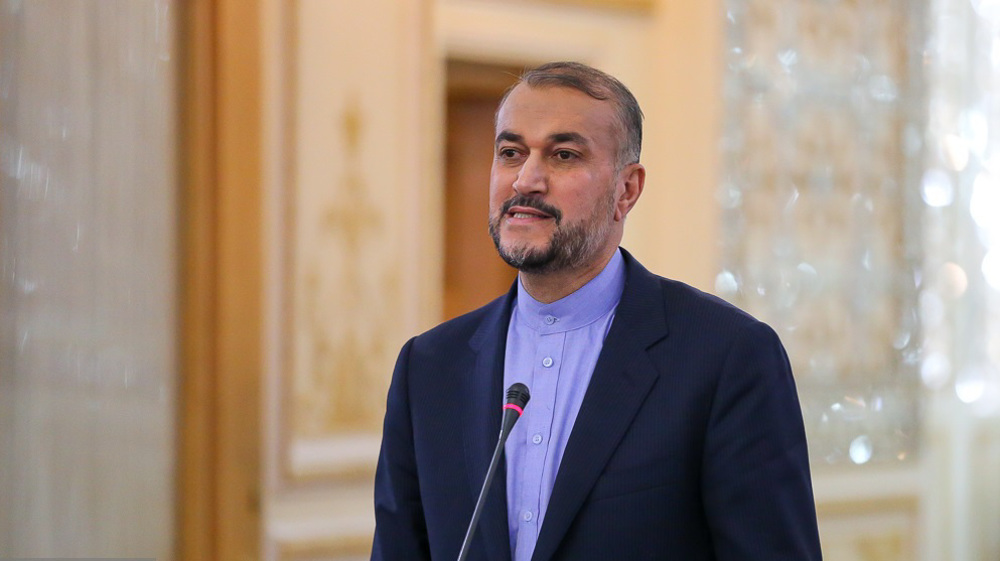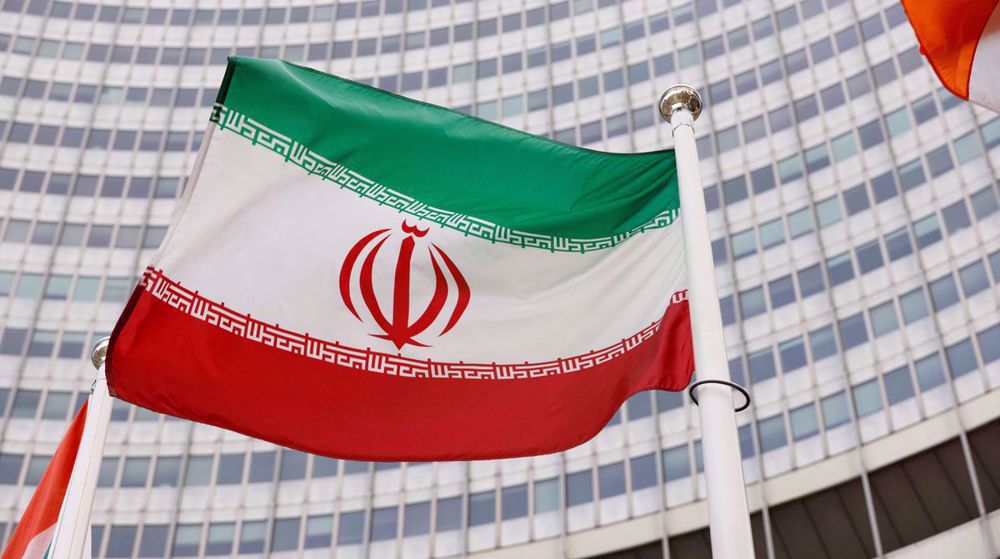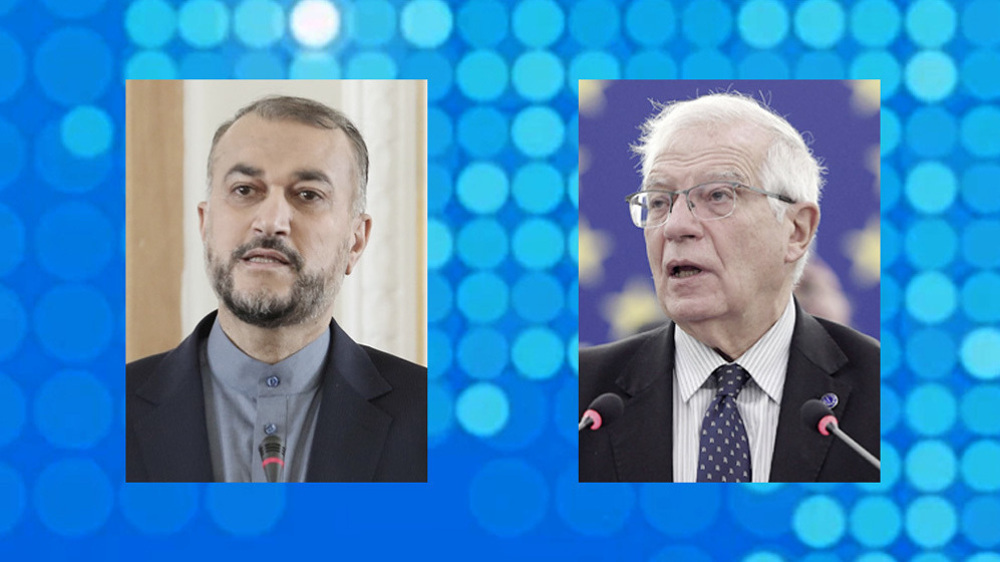US, European allies push for IAEA resolution disrupts JCPOA revival talks: Iran FM
Iran says the “unconstructive” move by the United States and its European allies to push for a resolution against Tehran will disrupt the process of negotiations aimed at the revival of the multilateral 2015 deal.
In a phone conversation with his Russian counterpart Sergei Lavrov on Friday, Foreign Minister Hossein Amir-Abdollahian said the parties obstructing the diplomatic path bear responsibility for the consequences of any potential resolution against the Islamic Republic during a meeting of the International Atomic Energy Agency's Board of Governors on Monday.
He said Iran and the United States have been exchanging messages over the past two months via the European Union to remove the sanctions against Tehran that were imposed after Washington's unilateral withdrawal from the Joint Comprehensive Plan of Action (JCPOA).
The White House and the three European parties to the JCPOA – France, Britain and Germany – are pushing the Board of Governors to rebuke Iran for failing to answer key questions on the so-called uranium traces, shifting the blame on Tehran as they have failed to honor their commitments.
The IAEA board “calls upon Iran to act on an urgent basis to fulfill its legal obligations and take up immediately the [IAEA] director general’s offer of further engagement to clarify and resolve all outstanding safeguards issues,” said a draft text sent to IAEA member states and seen by Reuters on Wednesday.
“Those who regard the Board of Governors and the director general’s report as leverage and tools of political games against Iran are responsible for the consequences,” Foreign Ministry spokesman Saeed Khatibzadeh said in a statement.
The 35-member Board of Governors meeting comes as the International Atomic Energy Agency (IAEA)’s chief Rafael Grossi is on a visit to Israel and met the regime’s hawkish Prime Minister Naftali Bennett.
In a phone call with the European Union’s foreign policy chief Josep Borrell on Friday, the Iranian foreign minister said the visit to Israel is in contradiction with the agency’s principles of observing impartiality and maintaining its technical and professional status.
Amir-Abdollahian said the Zionist regime is the “main culprit of illegal nuclear activities in the world.”
The Monday meeting will take place as a pause in the marathon negotiations to revive the 2015 deal entered its third month, with prospects described by Washington as “tenuous at best.” Tehran blames the US and its allies France, Britain, and Germany for failing to act constructively.
The high-profile visit by Grossi is against the backdrop of the latest report by the IAEA on Iran’s nuclear program amid the stalemate in Vienna talks.
Iran has on many previous occasions cautioned the UN nuclear agency against allowing the Israeli regime to influence its independent mandate and decision-making.
Russia firmly opposes US, E3 resolution: Lavrov
The Russian foreign minister, for his part, reiterated Moscow’s implacable opposition to the draft resolution. The resolution has no positive outcome while issues between Iran and the IAEA must be settled through technical channels, Lavrov said.
Iran warns of further erosion of IAEA’s credibility
The spokesman for Iran’s Foreign Ministry warned of moves that would damage the UN nuclear agency’s credibility, saying as one of the original signatories to the Treaty on the Non-Proliferation of Nuclear Weapons (NPT), the Islamic Republic called on all “to beware of further erosion of the IAEA’s credibility.”
“No one can keep mum on Israel’s clandestine nuclear weapons program and then claim impartiality and talk about Iran's peaceful nuclear activities,” Saeed Khatibzadeh said in a tweet on Friday.
As one of the original signatories to NPT, Iran calls on all to beware of further erosion of the IAEA's credibility.
— Saeed Khatibzadeh | سعید خطیبزاده (@SKhatibzadeh) June 3, 2022
No one can keep mum on Israel's clandestine nuclear weapons program and then claim impartiality and talk about Iran's peaceful nuclear activities.
Israel, which pursues a policy of deliberate ambiguity about its nuclear weapons, is estimated to have 200 to 400 nuclear warheads in its arsenal. The occupying entity has refused to allow inspections of its military nuclear facilities or sign the NPT.
Unlike Israel, Iran is an NPT signatory and has consistently maintained that its nuclear program is exclusively civilian and subject to the most intensive UN supervision on earth.
D-8’s role in Iran’s economy after Cairo summit
China slams US as ‘war-addicted’ threat to global security
China ‘firmly opposes’ US military aid to Taiwan
VIDEO | Press TV's News Headlines
President Yoon Suk Yeol to be removed from office
At least 19 Gazans killed by Israeli airstrikes since dawn: Medics
Leader: Iran neither has nor needs proxy forces
US fighter aircraft shot down ‘in friendly fire’ amid aggression on Yemen












 This makes it easy to access the Press TV website
This makes it easy to access the Press TV website